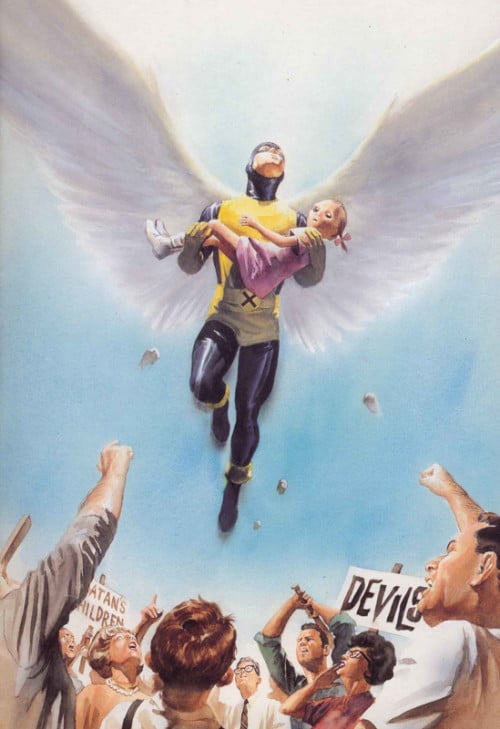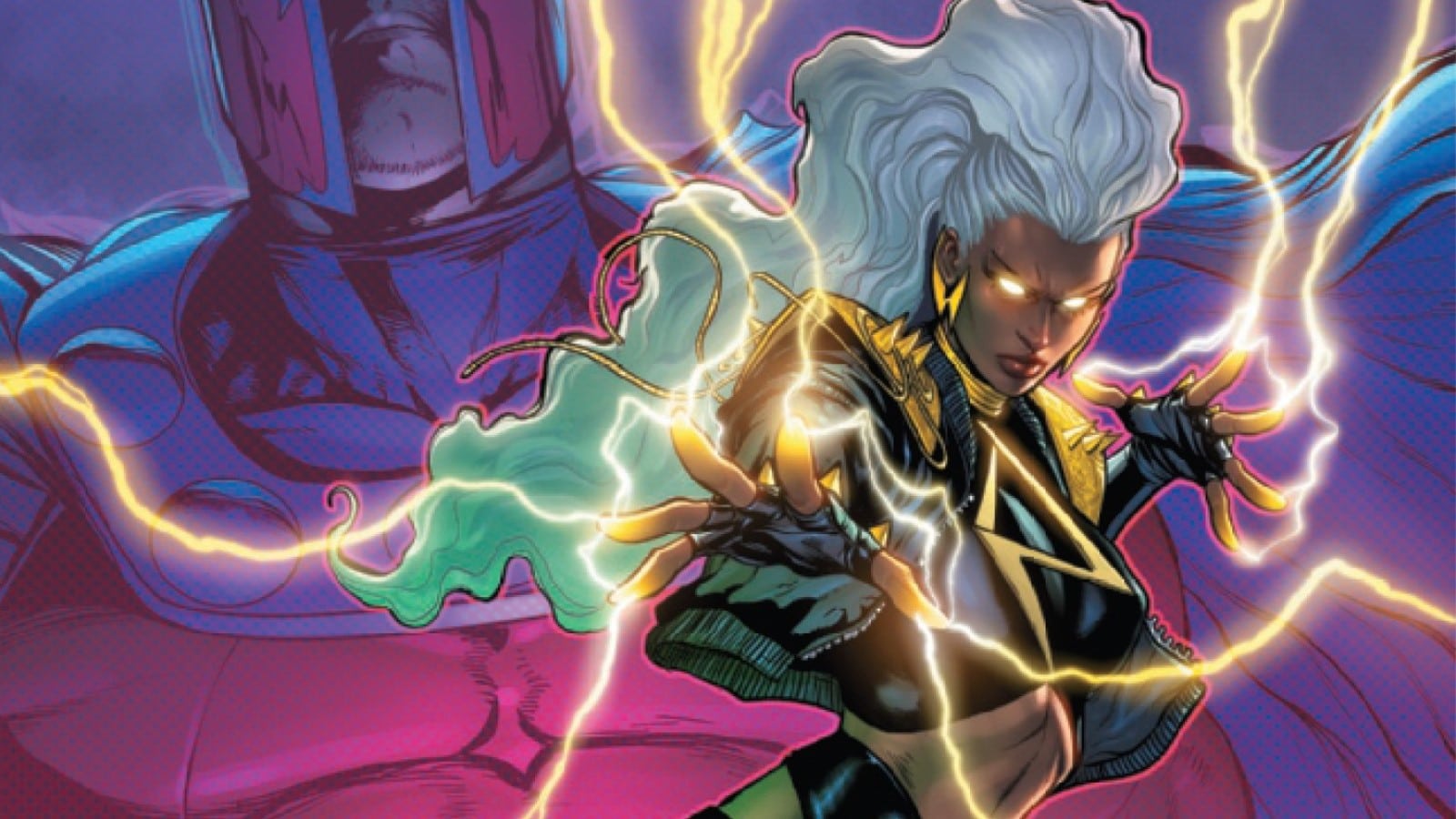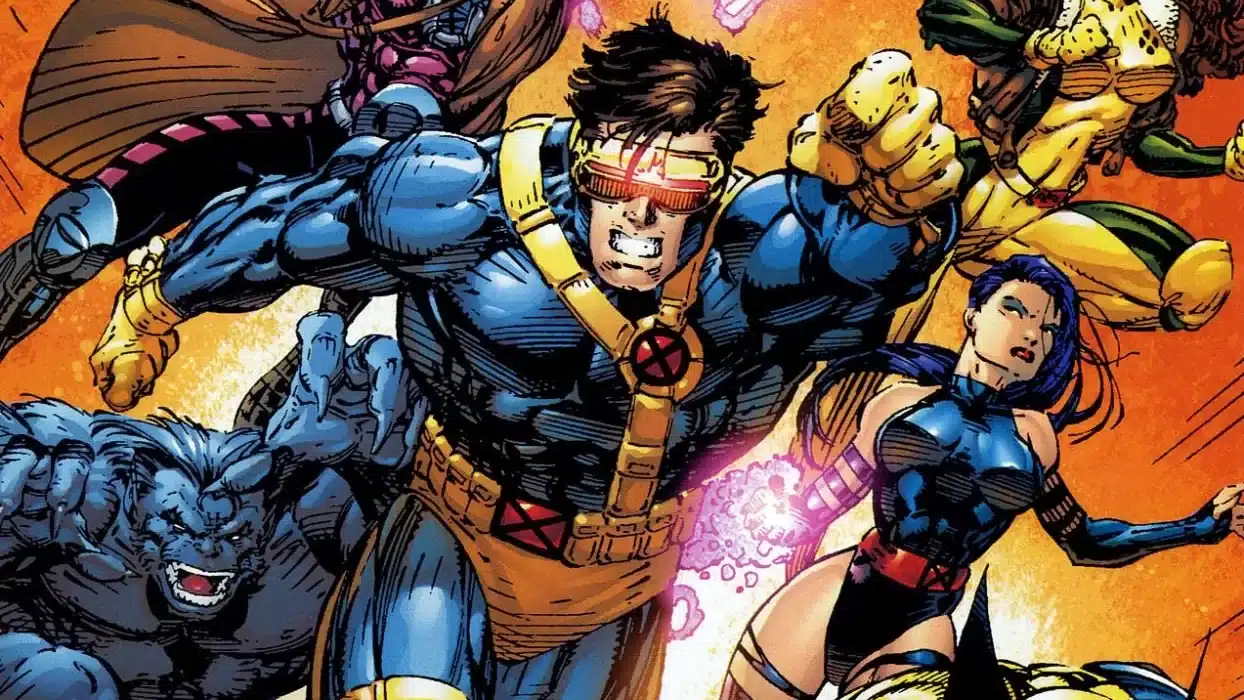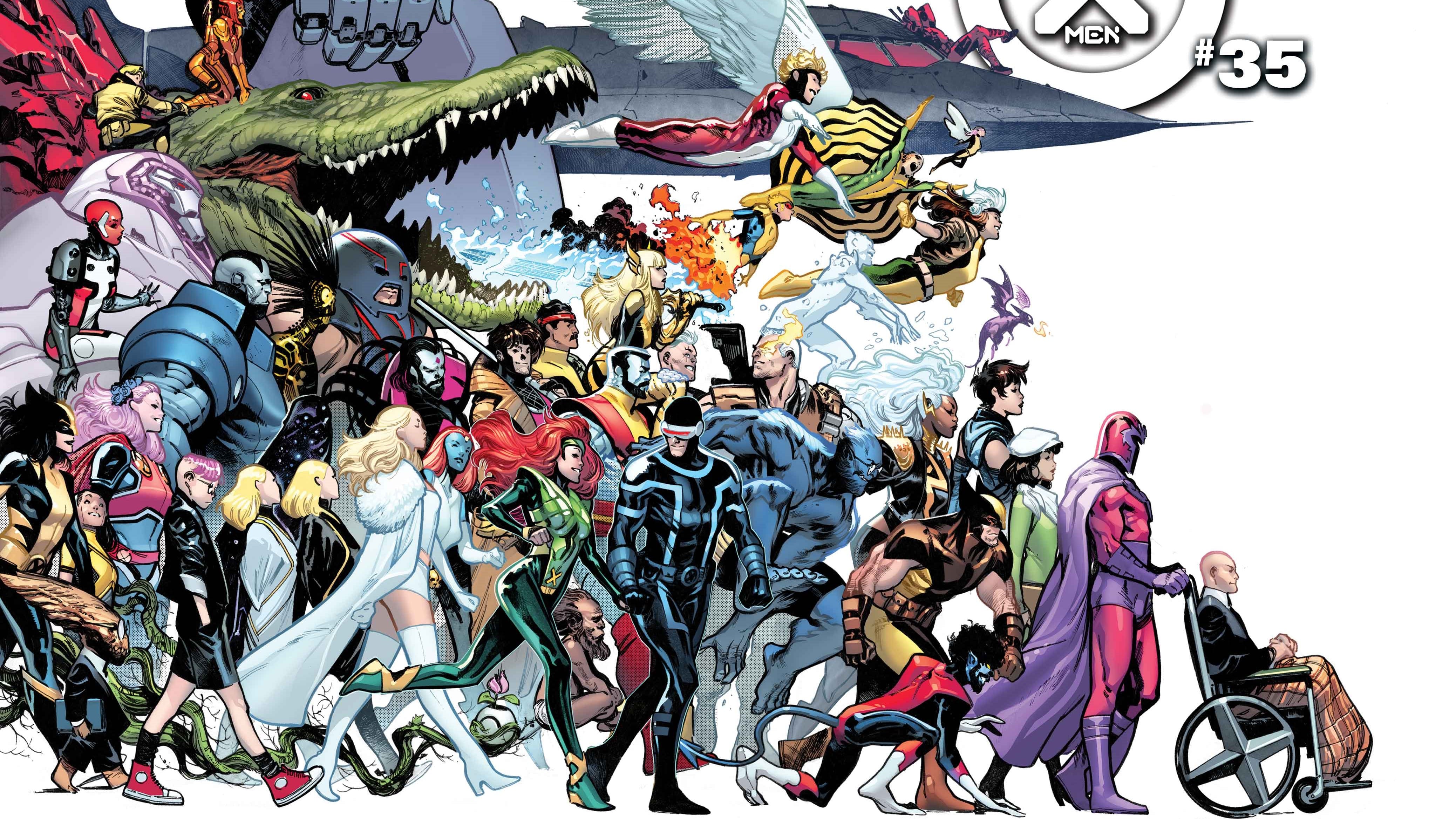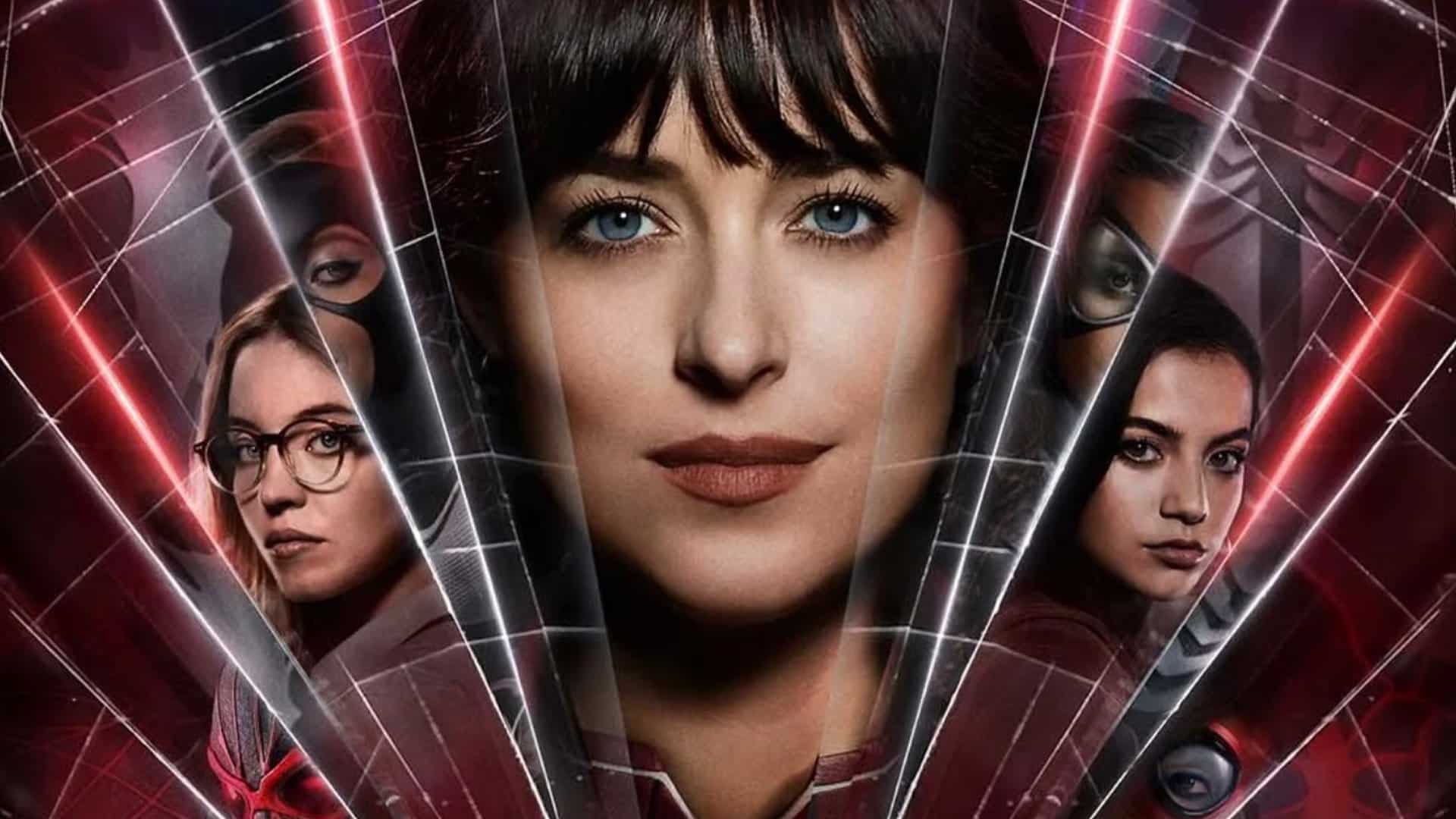This Editorial comes to us from Everett Christensen.
On Wednesday, the 14th of June 2017, in a comic named Secret Empire – United police with giant yellow Xs on their uniforms brutalized a human at the hearsay of a mutant [1]. This not only dilutes the Mutant Metaphor, it is irrational, irresponsible, and, frankly, dangerous. Any of the minorities mutants are standing in for do not receive the protection of state sanctioned violence. The Mutant Metaphor has failed and has been failed. Not only has it failed to reflect state violence’s impact on minority communities it has erased the identity of those it attempts to represent in favor of a literary conceit. In a time when the disproportionate killing of a minority group by the police, including subsequent avoidance of accountability, is one of the nation’s most persistent headlines X-Fans must demand that the Mutant Metaphor be more coherent and consistent.

What is the Mutant Metaphor? There are articles, a book [2], at least one dissertation, and podcasts on this topic. It is the subject of intense debate and has been for decades. The Mutant Metaphor is the conceit of mutants to stand in for any minority group. Mutants have stood in for disability and identity politics. Genosha was used as both a South African Apartheid metaphor and then again as a Zionist metaphor. The U-Men were used as a stand in for gentrification and cultural appropriation. The Legacy Virus was an AIDS metaphor. The Purifiers so closely aligned to the KKK they might as well wear pointy hats.
The metaphor isn’t so much important as it is vital to the franchise. There are no X-Men without a world that hates and fears them. Mutants are the victims of fear and oppression, they are the recipients of and stand ins for racialized violence. Iceman’s origin story involved him nearly being the victim of a lynching back in 1968 and the word Mutie is thrown around with the impact of a racial pejorative.This is what gives the X-Men pathos and makes it a compelling story. A team of rag-tag minorities thrust together trying to survive while being beleaguered on all fronts, including systemically from the government itself. Most people can see themselves in the Mutant Metaphor, it stretches to accommodate race, sexuality, and creed.
This concept collapses as soon as mutants aren’t an oppressed or disadvantaged group because of the relative imbalance of force a given mutant may project versus an average human. In addition, there is the willingness of protagonized mutants to use said force to resolve conflicts. Without the metaphor being actively in use mutants and the X-Men, in particular, become a nascent powered elite. This concept was explored in Age of Apocalypse and House of M without impacting the history of mainline continuity. This is why plotlines like the one in Secret Empire – United and Avengers vs. X-Men are such a failure of the basic understanding of what makes mutants compelling as well as the lived experience of the oppressed.

It should not be controversial to claim that mutants are the recipients of state based violence. Sentinels and their sordid history speak volumes to the willingness of the government to eradicate what they perceive as the mutant threat. It would follow for mutants to engage in the same kind of behavior to the humans who have oppressed them, right? Save for that is the same kind of argument that racists have used to justify the disenfranchisement of the black community since the end of slavery. There is no excuse for writing mutants in this fashion. The narrative suggests that the mutant state would seek a retributive justice or, to put it bluntly, if the minorities the mutants represent were to have the power to do so they would inflict the same back on their oppressors. This is giving voice to the documented white fear of black retribution [3].
It’s hard to imagine a better way to fail the metaphor than to directly play into an established narrative that justifies the oppression of a minority mutants have been used to represent. Minority groups in America that are served by the metaphor will never be in the position of benefiting unfairly from state force and suggesting otherwise is absurdist. Similarly, it should not be casually excused by mind control or any other such milquetoast reasoning. Minorities are often disproportionately impacted by the effects of state violence in America. Turning that on its head is not transgressive, it is regressive and fearful.

It is critical to the legacy of the Mutant Metaphor that it not be used to spread such fear or intolerance. If mutants are going to be used as a stand-in for minorities it must be demanded that they are represented as such in mainline continuity. Being a Mutant must have a clear cultural identity or even cultural identities and those should intersect with their other identities instead of to the exclusion of all others as it so often does. The remit of the X-Men is to the peaceful co-existence between human and mutant. Xavier’s dream, no matter how the character himself was handled over time, is still the popular understanding. Both reader and author are done a disservice by stories framed counter to that core idea.
The framework of the metaphor are the themes of bigotry and the triumph over it. Enacting the power fantasy of taking arms to end injustice, tyranny, and oppression have so often been the subjects of the comics themselves. Once you have linked the concept of mutants to that of the persecuted their triumph becomes the triumph of the oppressed. Defeating Cameron Hodge for the Nth time is still functionally similar to Captain America punching Hitler in the face.
The willingness to tell such tales is a part of the value and importance of the franchise. Stories that dilute, confuse, or undo the framework erase the very real cost that minorities in America pay, it erases the links between mutants and the real people they represent.

Instead, we must demand stories that reflect the minority issues that are pressing in our modern culture. Not as the only stories, but present and consistent, particularly with the acknowledgment that actual social change does not occur quickly. It would be hard to paint parallels between the last few years of X-Men comics to the struggles of any minority group. As the mutant narrative drifts further and further from the metaphor that saw them through their most popular era it becomes easier for these kinds of stories to be told that damage the legacy of diversity, inclusion, and tolerance. X-Fans, including the author, must demand more representation both in the Mutant Metaphor but in stories and characters that address social issues directly.
This demand will not only make for compelling stories but will ensure that over time the Mutant Metaphor remains relevant to readers of all ages and from all walks of life. A coherent understanding of the conceit is required, how it translates into the narrative to keep the X-Men franchise relevant in popular culture indefinitely. The metaphor can be served by continuing to invite diverse authors to tell their stories, continuing to create and focus on new minority characters, and editorial oversight that will continue to safeguard the legacy of comics greatest soap-opera. The alternative is to let the X-Men franchise become more white, it has already been rather white, which would be quite the interesting read when white people are a minority population in America with the ability to project an imbalanced amount of force against the majority.

" data-author-type="
Warning: Undefined array key "type" in /home4/xavierf2/public_html/wp-content/plugins/molongui-authorship/views/author-box/html-layout.php on line 18
" data-author-archived="
Warning: Undefined array key "archived" in /home4/xavierf2/public_html/wp-content/plugins/molongui-authorship/views/author-box/html-layout.php on line 19
">
Warning: Undefined array key "id" in /home4/xavierf2/public_html/wp-content/plugins/molongui-authorship/views/author-box/html-layout.php on line 39
-"
Warning: Undefined array key "archive" in /home4/xavierf2/public_html/wp-content/plugins/molongui-authorship/views/author-box/html-layout.php on line 40
itemscope itemid="" itemtype="https://schema.org/Person" >
Warning: Undefined array key "img" in /home4/xavierf2/public_html/wp-content/plugins/molongui-authorship/views/author-box/parts/html-avatar.php on line 4
Warning: Undefined array key "show_social_web" in /home4/xavierf2/public_html/wp-content/plugins/molongui-authorship/views/author-box/parts/html-socialmedia.php on line 6
Warning: Undefined array key "show_social_mail" in /home4/xavierf2/public_html/wp-content/plugins/molongui-authorship/views/author-box/parts/html-socialmedia.php on line 7
Warning: Undefined array key "show_social_phone" in /home4/xavierf2/public_html/wp-content/plugins/molongui-authorship/views/author-box/parts/html-socialmedia.php on line 8
Warning: Undefined array key "type" in /home4/xavierf2/public_html/wp-content/plugins/molongui-authorship/views/author-box/parts/html-name.php on line 17
Warning: Undefined array key "type" in /home4/xavierf2/public_html/wp-content/plugins/molongui-authorship/views/author-box/parts/html-name.php on line 19
Warning: Undefined array key "type" in /home4/xavierf2/public_html/wp-content/plugins/molongui-authorship/views/author-box/parts/html-name.php on line 21
Warning: Undefined array key "archive" in /home4/xavierf2/public_html/wp-content/plugins/molongui-authorship/views/author-box/parts/html-name.php on line 37
Warning: Undefined array key "name" in /home4/xavierf2/public_html/wp-content/plugins/molongui-authorship/views/author-box/parts/html-name.php on line 41
Warning: Undefined array key "bio" in /home4/xavierf2/public_html/wp-content/plugins/molongui-authorship/views/author-box/parts/html-bio.php on line 8

